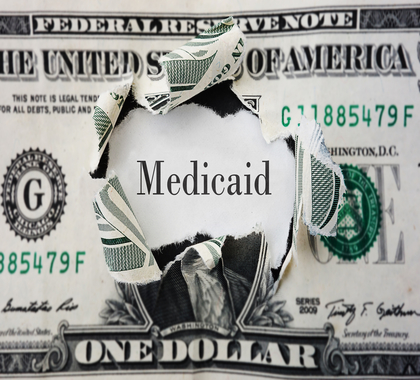The proposed Medicaid Fiscal Accountability Rule (MFAR) would end impermissible financing arrangements, to ensure Medicaid dollars are spent on the direct needs of beneficiaries.
“We have seen a proliferation of payment arrangements that mask or circumvent the rules where shady recycling schemes drive up taxpayer costs and pervert the system,” stated CMS Administrator Seema Verma in a news release. “Today’s rule proposal will shine a light on these practices, allowing CMS to better protect taxpayer dollars and ensure that Medicaid spending is directed toward high-value services that benefit patient needs.”
Hidden in Bulk Payments
The rule, issued on November 12, arrived on the heels of a report by the Senate Finance Committee Majority Staff on April 30 that reviewed base payments and supplemental payments made by the federal government to the states. Supplemental payments are lump sums paid to states not linked specifically to beneficiaries.
The report, Greater Transparency of Supplemental Payments Needed, notes data on these payments is collected in the aggregate, which leaves Congress and the administration in the dark as to how states are distributing the money. The report says supplemental Medicaid payments totaled nearly $50 billion in 2016 alone.
The payment arrangements are typically seen in two situations: states making additional payments above normal reimbursement for billed services, and states using the funds to subsidize their portion of shared federal-state funding for Medicaid.
Schemes and Scams
Devon Herrick, a health care economist and policy adviser to The Heartland Institute, which publishes Health Care News, says the schemes can be complex.
“[In one example] states have created an [illegal] arrangement where they tax Medicaid facilities coupled with an under-the-table agreement to return the funds back to the facilities,” said Herrick. “This allows the state to claim a larger state contribution for which the state gets a federal matching grant.”
Herrick says it has taken far too long for CMS to get around to addressing this issue.
“It is long overdue for CMS to rein in abusive Medicaid schemes,” said Herrick. “For instance, some states tax hospitals and then return the funds to providers, earmarked as state spending that the federal government has to match despite no actual increase in state spending.
“These shenanigans are why many analysts call for block grants to force states to spend more prudently,” said Herrick. “It is sort of like playing whack-a-mole.”
Kelsey Hackem, J.D. ([email protected]) writes from Washington State.
Internet Info:
Fact Sheet: 2019 Medicaid Fiscal Accountability Regulation, Centers for Medicare and Medicaid Services, November 12, 2019: https://www.cms.gov/newsroom/fact-sheets/fact-sheet-2019-medicaid-fiscal-accountability-regulation-mfar
Greater Transparency of Supplemental Payments Needed, U.S. Senate Committee Majority Staff Report, April 30, 2019: https://heartland.org/publications-resources/publications/greater-transparency-of-supplemental-payments-needed




